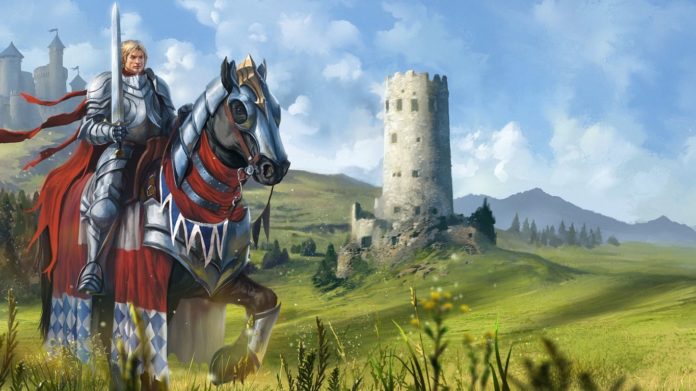
#Medieval europe knights information code
Knights even had flagsĪll pages, squires and knights had to follow an elaborate code of conduct.

Once you had proved your ability, you were made a knight in a very formal ceremony.Įach knight had his own coat of arms that identified him. This was where you proved if you had the ability to be a knight. As a squire you went into battle with the knight and fought at his side. They continued their training in battle, but also were assigned to a specific knight who completed their training. They had to teach the pages of course, but they also had to wait on the knights. Once they reached a certain point in their training, they would be appointed as a squire.Ī squire, who was generally a teenager, had a different set of duties. It was just like going to school, only their teachers were the squires.
#Medieval europe knights information how to
Nobles' sons had to train with weapons of course, but they also had to learn how to ride a horse, how to behave towards their liege lords and ladies, and even about music and the other arts. 4 At 14, provided you did nothing egregious and were still in good physical health, the page moved on to become a squire. Instead of toys and tag, a page played with maces and worked on his horsemanship. A noble's son could start training to be a knight when he was seven years old. Much of the training focused on games and sports however, they were extreme games. How did one get to be a knight? It was not easy. Tales of daring deeds and chivalry were told in poems and popular songs so that lasting fame awaited those knights who rose above their peers. With the best training, the best clothes, the best weapons and, supposedly, the best manners, they were what everyone else aspired to be. A knight pledged loyalty to their liege lord, promised to be brave in battle and protect the church and those weaker than themselves, and to be courteous to noblewomen. In the Middle Ages, knights were at the top of the social ladder.

But anyone who proved themselves in battle could be knighted. You didn't have to be a noble to become a knight, but it was a lot easier since you needed money to get the training and to buy the armor.

Together with Lordship, Knighthood is considered a class of the lower nobility, though in the west as the time had passed on they developed their own identity based on the chivalric code. Knights are people who were granted the lowest ranking noble title by a vassal for their service, especially in the military.


 0 kommentar(er)
0 kommentar(er)
